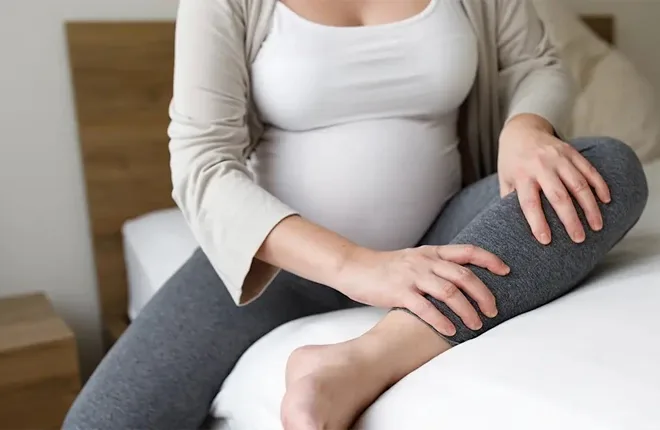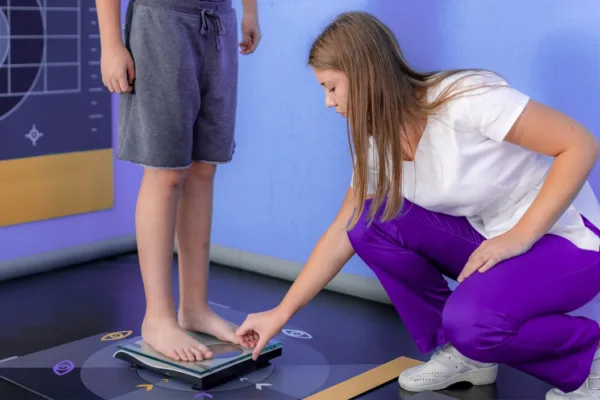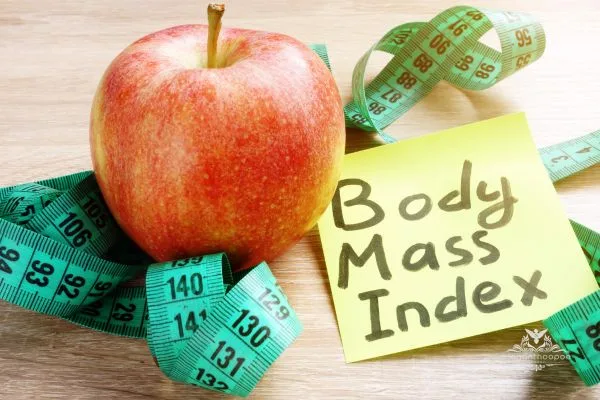What Causes Leg Cramps During Pregnancy & How Can You Stop Them?
Leg cramps during pregnancy are common, especially in the second and third trimesters, due to factors like increased blood volume, hormonal changes, nerve compression, and nutrient deficiencies. To relieve and prevent them:
Stretch regularly – Focus on calf and hamstring stretches.
Stay hydrated – Drink plenty of water to prevent muscle spasms.
Massage & warm baths – Soothe muscles and improve circulation.
Eat a balanced diet – Include magnesium, potassium, and calcium-rich foods.
Adjust sleep position – Sleep on your left side with a pillow between your knees.
Wear supportive shoes – Avoid high heels and opt for arch-support footwear.
If cramps are severe, persistent, or accompanied by swelling or redness, consult a doctor.
Pregnancy is quite a beautiful journey, yet it is not without its own set of inconveniences. One of the most common discomforts that all pregnant women face is probably leg cramps. Unwanted muscle contractions would often come as a shock to the expectant mother and cause sharp pain as well as soreness. Generally harmless, leg cramps can be a real pain when they interrupt your sleep or affect your daily routine. Fear not, expectant mum! This blog will illuminate what causes leg cramps during pregnancy and give practical ways to alleviate them.
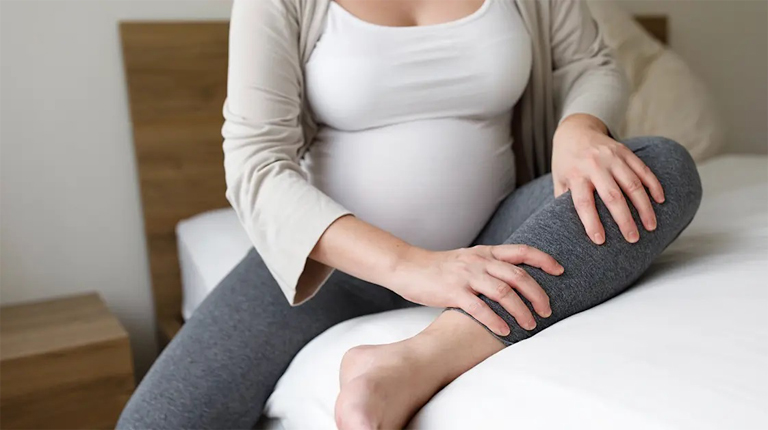
What causes leg cramps during pregnancy?
Leg cramps during pregnancy occur commonly in the second and third trimesters. Its cause is not always established, but several factors that may contribute to this discomfort are:
- Increased Blood Volume: Pregnancy increases blood volume as a way of providing extra blood for the growing baby, which may increase blood pressure on the blood vessels, affecting circulation in the legs.
- Hormonal Changes: The changes in hormones that are seen during pregnancy may also influence the muscles and cause cramps. In addition, the hormones can also alter how your body holds and distributes fluids.
- Pressure on Nerves: Since your uterus grows in size, it can put pressure on nerves in your back and legs, causing cramping.
- Nutrient deficiencies: Lack of certain nutrients like magnesium, calcium, and potassium may also result in muscle cramps. Pregnant women have a high demand for the essential nutrients mentioned above, and hence deficiency leads to their respective kinds of muscle cramps.
- Dehydration: During pregnancy, staying hydrated is very essential, and dehydration can be the cause of muscle cramps. It is very essential to drink a lot of water, especially as the body is adjusting to pregnancy.
How to Relieve Leg Cramps During Pregnancy
Leg cramps can be very painful, but there are many ways you can relieve them. From simple lifestyle changes to natural remedies, here are some expert tips on how to soothe leg cramps during pregnancy.
Stretch Your Muscles
The easiest way to avoid and even relieve cramps is stretching. Mild stretching elongates the muscles in your legs and thus can release some of the tension which mostly causes the cramping. Try these stretches:
Calf Stretch: Stand with your hands on a wall as a support. Place one leg way back and push your heel down, keeping your knee straight. Hold for 15–30 seconds. Switch legs and do the same.
Hamstring Stretch: Sit on the floor with your legs extended straight in front of you. Slowly bend at the hips, trying to touch your toes. For a minimum of 15–30 seconds.
Be sure to stretch before bed, since most people get leg cramps at night.
Massage Your Legs
Massage the area to increase blood flow and help relax spasmed muscles. Use your hands to massage the cramped muscle in a circular motion. Applying a warm compress or heating pad over the cramped muscle can help.
Stay Hydrated
Fluid intake is very important especially when experiencing leg cramps; therefore, it is also important during pregnancy. Generally, when one is dehydrated, the severity of cramps increases; thus, drink at least 8–10 glasses of water per day. Hydration and soothing can also be helped by herbal teas such as ginger or chamomile.
Maintain a balanced diet to manage leg cramps during pregnancy
Leg cramps caused by deficiencies are preventable by eating foods rich in vitamins and minerals. Focus on foods with high magnesium, potassium, and calcium levels, for example:
Magnesium food sources: Leafy green vegetables like spinach and kale; nuts; seeds; whole grains; and legumes.
Rich potassium food items– Bananas, sweet potatoes, avocados, oranges.
High-calorie foods include dairy products, fortified plant-based milk, tofu, and broccoli.
If you feel that your cramps may be caused by a deficiency, then discuss with your doctor supplements that may be helpful.

Change Your Sleeping Position
Leg cramps often occur worse at night. Also, a sleeping position may make it worse. Avoid lying in bed for too long a period of time because lying on your back can create pressure on the veins inside your legs. Sleep on your left side with a pillow between your knees for better circulation.
Wearing Comfortable Shoes
Wearing shoes that allow support can help reduce strain on your legs and feet. Comfortable, well-fitted shoes with arch supports are a good way of preventing cramping. In contrast, high heels, as well as tight-fitting shoes, exacerbate the problem.
Raise Your Legs
When resting or sleeping, elevate your legs. Place a pillow or cushion under your legs to ensure they are a little above the level of your heart, which helps ease cramping and reduce pressure on your veins.
Take Warm Baths
Warm baths can really help unwind the muscles and soothe painful cramps in your leg. Use Epsom salt and soak with magnesium dissolved within, for the calming of the muscle spasm. Don’t soak in really hot water though because really hot water can become quite bothersome for a pregnant woman.
Regular Exercise
Although it may seem illogical, regular low-impact exercise can help in combating leg cramps. Good circulation and relaxation of muscles are achieved through exercises like walking, swimming, and prenatal yoga. However, never forget to consult your health provider before beginning a new exercise regime.
Wear Compression Stockings
Compression stockings and socks will improve circulation and prevent the onset of muscle cramps. These compression stockings work by tight-squeezing your legs, decreasing swelling, and increasing blood circulation. This is particularly useful when pregnant, on your feet often, or required to sit a lot.
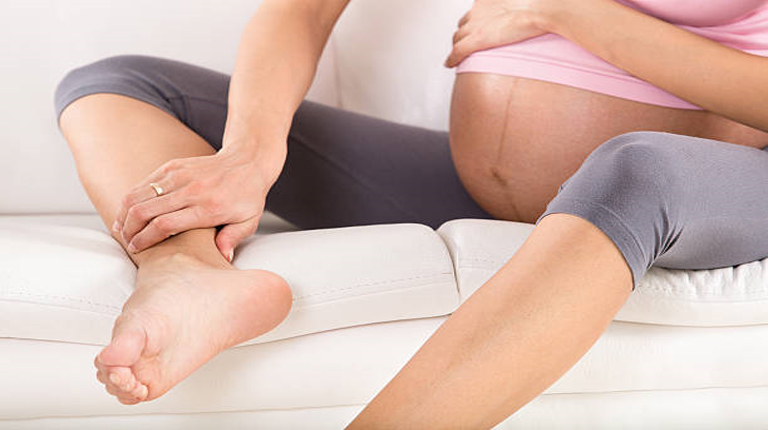
When to Seek Medical Advice for Leg Cramps During Pregnancy
Although generally innocuous, there are some conditions that require you to visit your doctor immediately in the case of leg cramps:
- Severe or Recurring Cramps: When cramps are severe or become chronic, you need to visit your doctor. In many cases, persistent cramping could be a symptom of another illness.
- Swelling or redness: In case your leg is swollen, red, or sore to the touch, this could mean you have a blood clot, and you need to seek emergency medical care.
- Signs of Preterm Labor: If you have developed leg cramps accompanied by other symptoms such as; abdominal pain, back pain, or some contractions, you better call your healthcare giver immediately since they may sign preterm labor.
Conclusion: Leg Cramps During Pregnancy
Leg cramps are one of the common but uncomfortable symptoms experienced by most pregnant women. With proper management, leg cramps can be prevented or at least minimized. Stretches, sufficient hydration, and a well-balanced diet combined with massage and warm baths will go a long way in making life relatively comfortable. Do not hesitate to call your healthcare provider if you feel something has gone wrong or if the leg cramps become unbearable.
The whole pregnancy is very dramatic; however, with the proper care and precautions, one may still enjoy this period and get rid of painful cramps in the legs. Take good care of your body, feel as comfortable as possible, and always remember that you’re not alone; many mums-to-be go through it.


